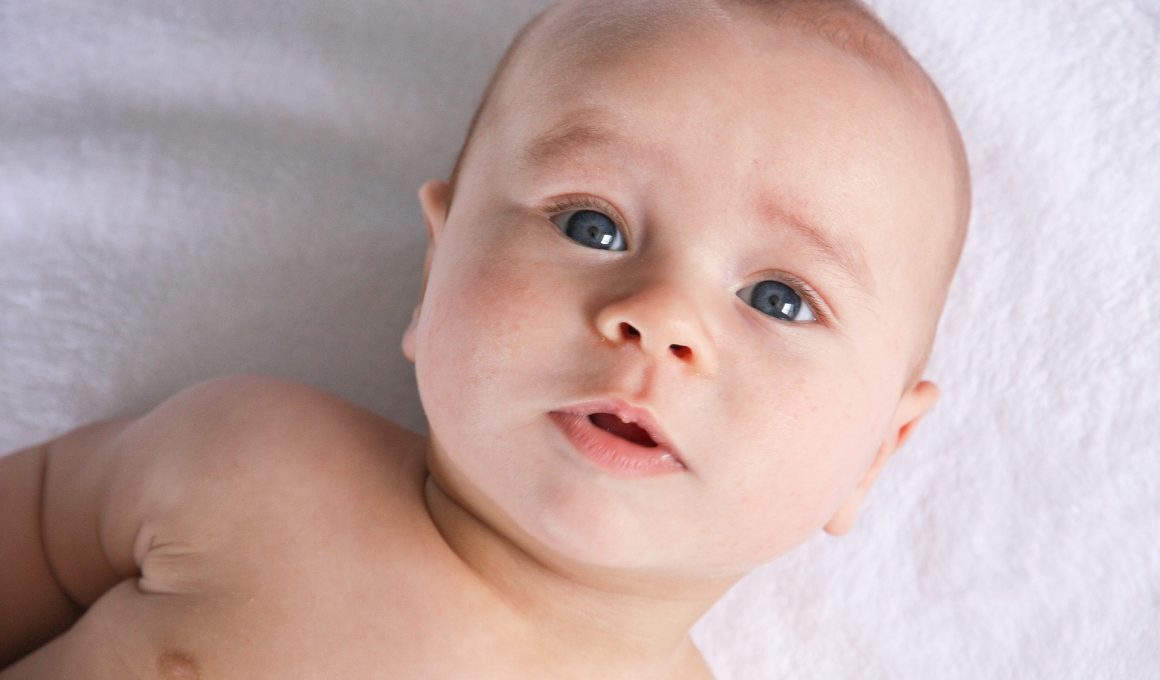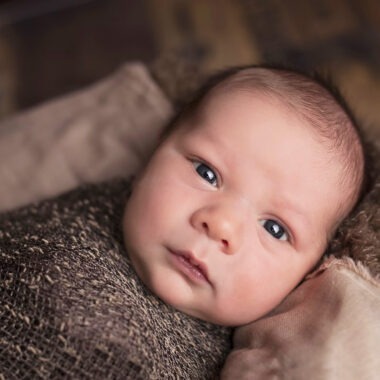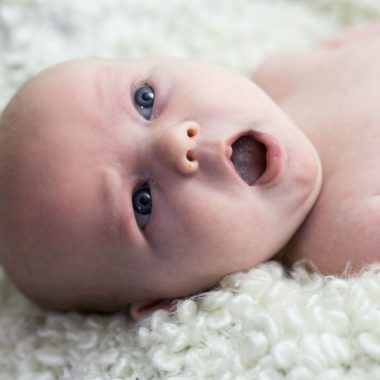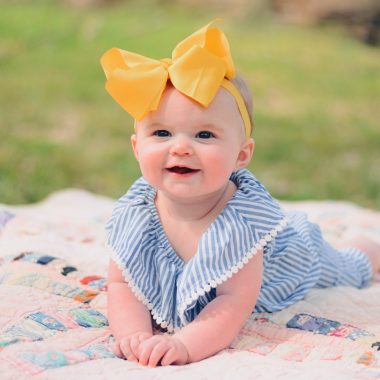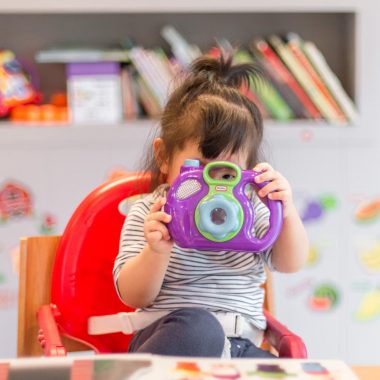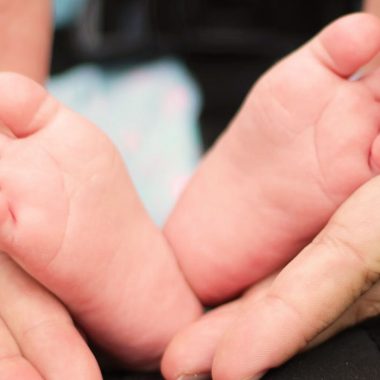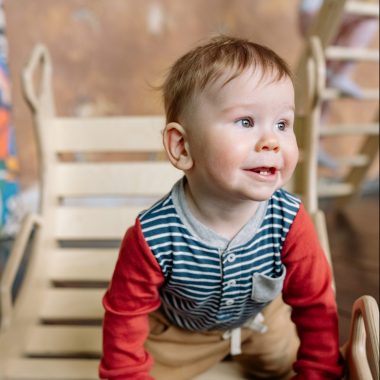Babies under 12 months are known to experience frequent hiccups. In fact, babies start hiccuping in the womb from as early as 21 weeks. Although, at times, it does become a cause of concern for parents, experts insist that it is a perfectly normal occurrence.
Hiccups are entirely harmless and don’t affect babies negatively. Unless you start noticing that your baby’s hiccups interfere with daily activities such as sleeping or eating, there should be no reason for concern.
A study conducted in 2019 showed that hiccups were instrumental in baby’s brain development and breathing. They are a common aspect of development and one of a baby’s earliest milestones.
There are plenty of reasons behind babies’ hiccups and what you can do to ease the annoyance of it all. Continue reading to learn all about your baby’s hiccups.
What causes baby hiccups?
Hiccups are most likely caused by irritation to the diaphragm. The diaphragm is the muscle at the base of the lungs and the body’s main muscle for breathing.
Once the nerves in the diaphragm are triggered, the diaphragm experiences spasms. These spasms cause the rapid closing of the vocal cords. This rapid closing of the vocal cords creates the “hic” sound.
It’s unclear what causes the nerves to be stimulated in the first place. Though in babies, the general understanding is that hiccups are caused by overfeeding, eating too quickly, or swallowing a lot of air while feeding.
ALSO READ: Umbilical Cord Care: What Every Parent Needs to Know
Why do children get hiccups?
Hiccups are a common occurrence in people of all ages, including babies. They are caused by the involuntary contraction of the diaphragm, which leads to a sharp intake of air and the characteristic “hic” sound as the epiglottis closes.
While in adults hiccups may be triggered by factors such as consuming spicy or fizzy foods, smoking, or chewing gum, in babies the causes may differ. It is important to understand how to identify and manage hiccups in infants, as they can be a source of concern for new parents.
How long do baby hiccups last?
It’s not uncommon for babies to hiccup multiple times a day, and these hiccups can last for up to 10 minutes or more. While it may be a cause for concern for parents, if your baby seems happy and comfortable, there’s usually no need to worry.
In most cases, baby hiccups will resolve on their own, but if they persist or seem to be causing discomfort, it’s a good idea to contact your doctor to rule out any underlying issues.
Does it hurt when my baby has hiccups?
When babies hiccup, their entire bodies may seem to jolt, and the sound of their hiccups can be quite loud. But you can rest assured that hiccuping doesn’t cause your baby and pain.
In fact, the experience of hiccuping for a baby or young child is similar to that of an adult. Sometimes, hiccups can even occur along with small amounts of milk being brought up during a reflux episode.
That too, is quite normal and should not be a cause for concern.
ALSO READ: Soothing Your Crying Baby: Tips and Techniques to Help You Both Relax
Relation between hiccups and gastroesophageal reflux
Sometimes hiccups can accompany reflux episodes. Hiccups alone are not necessarily a sign of gastroesophageal reflux (GERD), but the reflux episodes can be indicative of GERD.
Reflux causes stomach acid to back up into your baby’s esophagus. However, if your baby has GERD, hiccups won’t be the only symptom they exhibit.
Infants with reflux also display other symptoms such as:
- coughing
- spitting up
- irritability and crying
- arching their back, especially during or after a feeding
You should contact your doctor if your baby has any of these symptoms.
How do I stop my baby’s hiccups?
As a parent, it’s normal to be concerned about your baby’s hiccups. However, it’s important to know that hiccups are usually not harmful to babies and will often go away on their own.
While they may occur frequently, hiccups are generally nothing to worry about. If you are ever concerned about your baby’s hiccups or if they seem to be causing discomfort, it’s always best to talk to your pediatrician.
ALSO READ: 10 Common Pregnancy Discomforts and How to Manage Them
That being said, you can try the following techniques to help stop your baby’s hiccups:
Feed your baby before they get fussy
Try to feed your baby before they get hungry and start crying or get fussy. If your baby is upset during feeding, the milk or formula may not go down smoothly. This can lead to irritation to their esophagus.
Rub your baby’s back regularly
Rubbing your baby’s back in a circular motion following feedings may help release excess air and stop hiccups from occurring. Even if hiccups continue, rubbing your baby’s back can comfort your baby.
Slow down during feedings
If you notice that your baby has hiccups during feedings, there is a possibility that your baby might be feeding too quickly. Slowing down could lower your baby’s chances of hiccupping.
ALSO READ: Key Signs of Speech and Language Delays in Your Child
Change feeding positions
Try feeding your baby in a more upright position. Propping your baby against a pillow so they aren’t lying flat might help them take in less air while feeding. Changing positions won’t always stop a baby’s hiccups, but it can definitely help.
Burp your baby more frequently
Burping your baby during and following feedings is quite helpful in preventing hiccups. Try taking a burp break after every 2 or 3 ounces.
If you’re nursing, burp your baby before you switch sides. If your baby already has hiccups, you can try to relieve them with some gentle pats on the back.
Use a pacifier
Infant hiccups don’t always start from a feeding. When your baby starts to hiccup on their own, try allowing them to suck on a pacifier, as this will help relax the diaphragm and may help stop the hiccups.
ALSO READ: Surviving Postpartum: How To Manage Pregnancy Complications
Does gripe water help a hiccuping baby?
Gripe water is a herbal remedy that has been used for many years to help soothe colic and digestive discomfort in babies. Plenty of parents around the world use gripe water to treat hiccups and upset tummies in babies. While it can be effective in some cases, there are potential risks associated with its use.
It’s important to talk to your baby’s doctor before giving them any type of medication or supplement, including gripe water. They can help you determine if gripe water is safe for your baby and recommend other safe and effective remedies if necessary.
Can I prevent baby hiccups entirely?
It is not possible to prevent hiccups in babies entirely. They are a natural reflex, after all. However, according to Medical News Today, some strategies may help you reduce or better deal with baby hiccups.
These include:
- Feeding your baby before they become very hungry to keep them calm.
- Feeding your baby frequently and in small amounts.
- Propping your baby upright for half an hour after each feeding.
- Repositioning the bottle so no air is near the teat.
- Ensuring that your baby’s mouth is latched over the whole nipple.
Do hiccups mean a baby is full?
Hiccups are not always an indication that a baby is full. But, according to some experts, baby hiccups might result from food and acid rising from the stomach when the baby is full.
Hiccups might also be related to feeding too quickly, overfeeding, and swallowing air while feeding. So if you want to help your baby, you might feed them slowly and take breaks for burping.
ALSO READ: 12 Ways New Dads Can Bond With Their Baby
Do hiccups in the womb mean my baby is in distress?
In most cases, fetal hiccups are completely normal and not a cause for concern. They are a normal and healthy part of fetal development.
Feeling the baby’s hiccups throughout the second trimester and at the beginning of the third trimester usually indicates the baby’s respiratory and nervous systems are developing well, as are their reflexes.
Fetuses might be seen hiccuping on ultrasounds. Sometimes, hiccups can even be felt through the mother’s belly.
The hiccuping reflex is also very strong in newborns. Researchers estimate that newborns spend up to 2.5 % of their time hiccuping. Hiccups tend to decrease as babies grow through the first few months of life.
How to stop baby hiccups in breastfed babies
While hiccups are generally not a cause for concern, they can be annoying for both you and your baby. Here are a few things you can try to help stop hiccups in breastfed babies:
- Take a break: If your baby starts to hiccup during a feed, take a break and try to burp them. This can help release any trapped air that may be causing the hiccups.
- Change feeding position: If your baby often gets hiccups during feedings, try changing their feeding position. This can help reduce the amount of air they swallow while feeding.
- Burp your baby: Take breaks during feeding to burp your baby. A good time to do this is when switching breasts.
- Slow down feeding: If your baby is gulping down milk too quickly, it can cause hiccups. Try slowing down the feeding pace by taking frequent breaks and burping your baby.
- Offer a pacifier: Sucking on a pacifier can help relax the diaphragm and stop hiccups.
- Reevaluate the latch: If swallowing air seems to be the main issue, reevaluating the latch is a good idea. Make sure your baby’s lips are sealed around the areola of your breast and not just the nipple.
ALSO READ: What Is Positive Parenting? Benefits and Techniques Every Parent Should Know
How to stop baby hiccups in bottle-fed babies
Your baby is also prone to developing hiccups if you are bottle-feeding. If you are bottle-feeding, consider these tips to curb hiccups:
- Take burp breaks: Take a break to burp your baby and then complete the feeding after a short break of a few minutes.
- Reposition the bottle: You might want to make sure there is no air near the nipple of the bottle.
What to avoid while your baby has a series of hiccups
With all the aforementioned tips to reduce your baby’s hiccups, there are also some things to avoid. These include:
- Avoid giving your baby food or drink as that may cause them to swallow more air and hence, prolong their rhiccuping spell.
- Do not startle, jerk, or jostle your baby in an effort to combat hiccups.
- Refrain from laying your baby down. To the best of your capacity, keep them in an upright position until their hiccups abate.
- Don’t put a wet cloth on their forehead as this does not help.
- Holding one’s breath is a common remedy amongst adults to combat hiccups. Please do not attempt that with your baby and it can be quite dangerous.
ALSO READ: Unlock Your Baby’s Genius – Brain Boosting Activities for Babies
When should I see a doctor?
You should see a doctor if your baby’s hiccups persist for longer than normal or seem to be causing your little one distress. Additionally, if your baby is experiencing other symptoms like:
- Vomiting, difficulty breathing, or feeding issues
- Prolonged hiccups that continue for an abnormally long period (longer than 10 mins)
- Disruption in sleep and behavior patterns
It’s always better to err on the side of caution and consult with your pediatrician if you have any concerns about your baby’s health.
References: mayoclinic.org, webmd.com, healthline.com, health.clevelandclinic.org, pregnancybirthbaby.org.au, www.whattoexpect.com, verywellfamily.com


